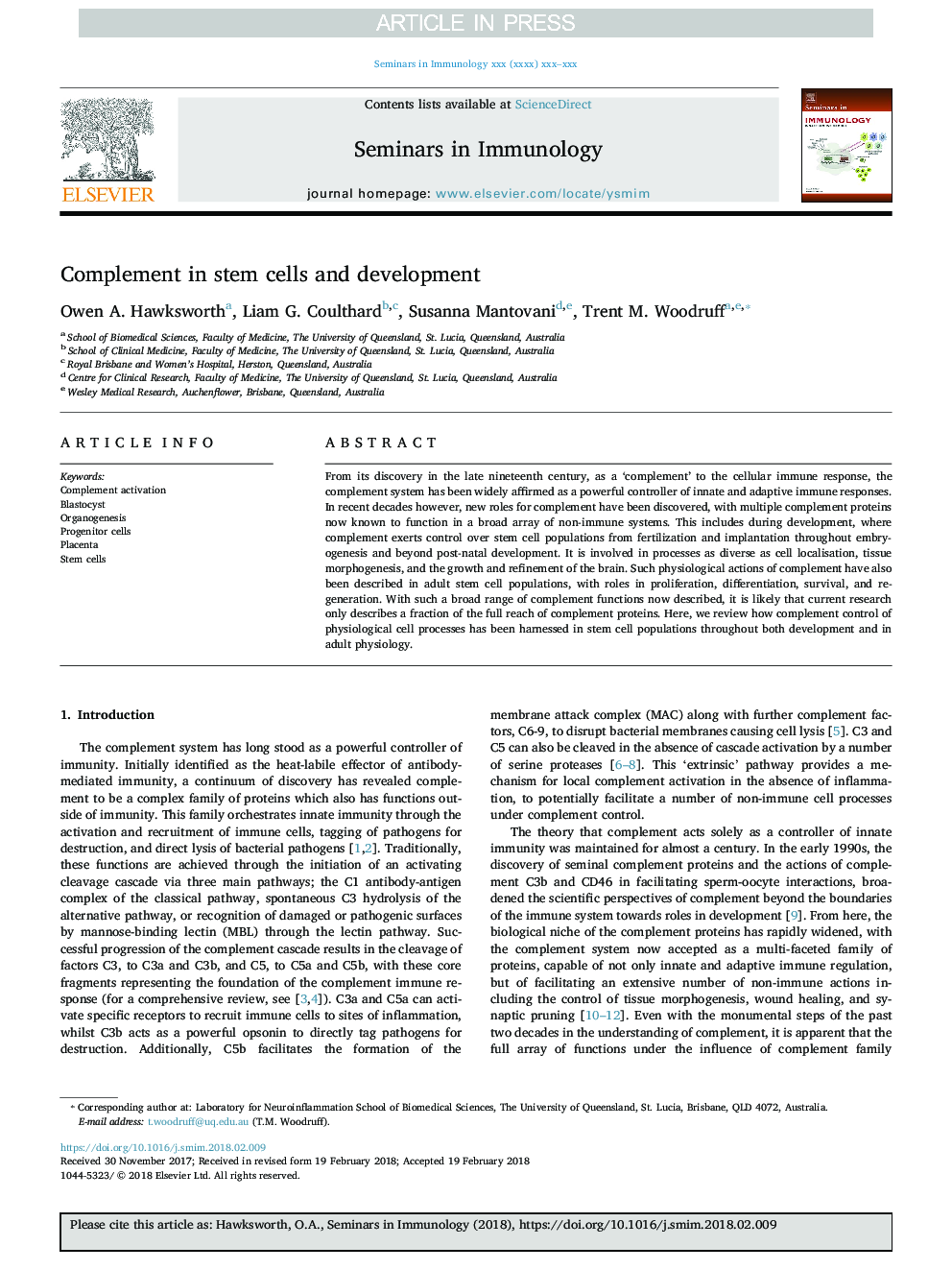| Article ID | Journal | Published Year | Pages | File Type |
|---|---|---|---|---|
| 8743678 | Seminars in Immunology | 2018 | 11 Pages |
Abstract
From its discovery in the late nineteenth century, as a 'complement' to the cellular immune response, the complement system has been widely affirmed as a powerful controller of innate and adaptive immune responses. In recent decades however, new roles for complement have been discovered, with multiple complement proteins now known to function in a broad array of non-immune systems. This includes during development, where complement exerts control over stem cell populations from fertilization and implantation throughout embryogenesis and beyond post-natal development. It is involved in processes as diverse as cell localisation, tissue morphogenesis, and the growth and refinement of the brain. Such physiological actions of complement have also been described in adult stem cell populations, with roles in proliferation, differentiation, survival, and regeneration. With such a broad range of complement functions now described, it is likely that current research only describes a fraction of the full reach of complement proteins. Here, we review how complement control of physiological cell processes has been harnessed in stem cell populations throughout both development and in adult physiology.
Related Topics
Life Sciences
Immunology and Microbiology
Immunology
Authors
Owen A. Hawksworth, Liam G. Coulthard, Susanna Mantovani, Trent M. Woodruff,
